Workshops
Thursday, November 13, 2025
Time: 8:00 AM-12:00 PM
W-12: Biological Wastewater Treatment – A Chemical Engineering Perspective on Biological Processes
Kyle Stern, Kiewit Engineering Inc., Lenexa, KS
Objective is for attendees to get an introduction and foundational understanding of biological processes for treating carbonaceous waste, as well as macronutrients such as nitrogen and phosphorus. As a chemical engineer primarily, this workshop will come from the perspective of the underlying foundational reactions and kinetics to gain process understanding.
We build this understanding by looking at different industrial applications for biological treatment and how these type of systems can tie into process objectives.
W-13: Unlocking the Science: A Journey Through Water Treatment Processes
Jeff Easton, Ph.D., P.E., Clearstream Environmental, Sandy, UT
In this engaging workshop, we delve into the core principles of water treatment unit processes. By demystifying the intricacies of these fundamental methods, engineers and project professionals gain the knowledge needed to make informed decisions. Join us as we explore the “how” behind achieving process objectives.
Unit processes to be covered:
• Coagulation
• Flocculation
• Precipitation
• Sedimentation
• Barrier filtration
• Depth filtration
• Reduction / Oxidation
• Biological Redox
• Biological nutrient removal
• Ion exchange
• Size exclusion separation
• Charge exclusion separation
• Vapor phase separation
• Pumping
• Mixing
• Flow control
• Instrumentation
W-14: Concentrate Management for Industrial Desalination
John A. Korpiel, P.E., Xylem Inc., Pittsburgh, PA
This workshop will provide an overview of the options for managing the concentrate generated from industrial desalination processes and their associated challenges. The workshop is intended for engineers, technologists, managers, and operators who want to gain a better understanding of concentrate management, but will also serve as a refresher for those who already have experience in this area. While prior knowledge of membrane-based desalination is beneficial, it is not a strict requirement for attending this workshop. The following topics will be discussed:
· Introduction and challenges of industrial desalination concentrate management
· Overview of conventional brine management options available for disposal and beneficial reuse, including surface water discharge, deep well injection, evaporation ponds, and land application
· Strategies for brine minimization by optimizing conventional membrane-based desalination processes or by using innovative membrane-based minimum liquid discharge (MLD) technologies
· Thermal technologies for MLD or zero liquid discharge (ZLD) applications; the latter of which eliminates the brine stream, generating a solid byproduct that is suitable for disposal in a landfill or for beneficial reuse
· The benefits, issues, and limitations of each of the brine management options and technologies
· Example flow sheets of integrated MLD and ZLD process systems
· Emerging technologies for brine minimization


